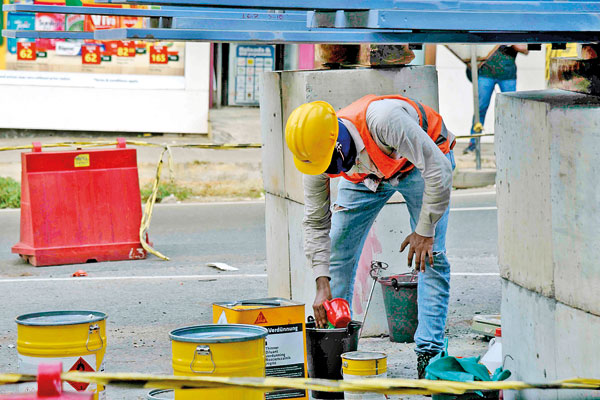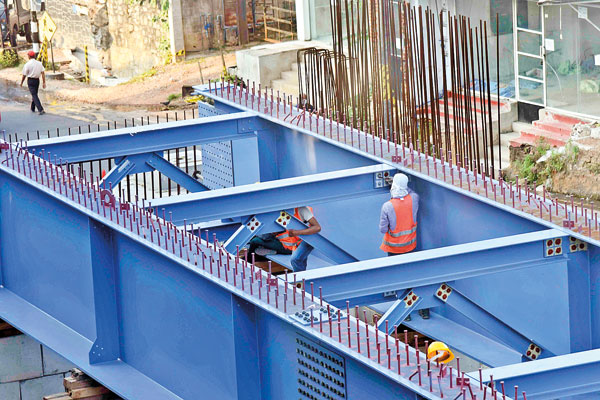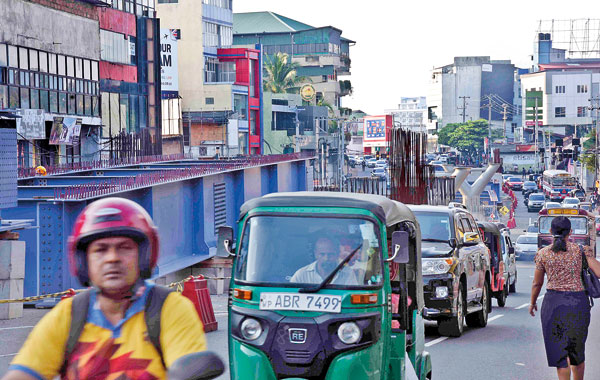News
Public bodies try pruning costs to remain viable
View(s):By Senuka Jayakody
State institutions are cutting back on day-to-day expenditure, projects and services in line with a directive from the Finance Ministry.
A circular issued on January 27 by the Ministry of Finance, Economic Stabilisation and National Policies, demanded that recurrent provisions appropriated for 2023 be reduced by a minimum of 6%.
The Minister of Media and Transport and Highways, Bandula Gunawardena said many projects have been stopped.
He cited the Central Highway, its Kadawatha-Meerigama stretch, two overhead bridges in Getambe and Kohuwala, among projects already halted.
“There are parts lying on the road causing congestion especially in Kohuwala,’’ he said, referring to the overhead bridge.
The iRoad project funded by an Asian Development Bank loan has also been halted. “We do not even have money to put at least a clod of soil from that point onward.’’
The secretary of the Ministry of Transport, M. M. P. K. Mayadunne, told the Sunday Times that the 5% can be reduced from the Ministry of Highways, but not from transport. “Transport is a public service. With the (rising) fuel costs, (more) people are using public transport.’’
Using digital tools will also help reduce costs on a daily basis.
The Ministry of Foreign Affairs said it was curtailing capital expenditure of overseas missions and strictly controlling the payment of allowances, while using virtual and digital communication strategies.
“Through such means the Ministry was capable of reducing expenditure by at least 15% in 2022 and it is expecting to take measures to further reduce the expenditure by 6% in 2023,” a Ministry official said.
The secretary of the Ministry of Urban Development and Housing, W. S. Satyananda said priority would be given to housing projects which are underway.
In addition, the budget allocated would also be used to pay arrears of 2021/2022. New projects would be started based on the remaining budget.
“When officials request development projects in the North-East, we implement them with the help of the respective District Secretaries to save fuel expenses,’’ he said.
The Ceylon Electricity Board general manager, Rohan Seneviratne said unnecessary expenditure will be reduced for at least a few months.
“Our aim is to further reduce expenditure,” he said, adding that 87% of expenses are for electricity. This will be reduced by switching to renewables.
Spending on employees, maintenance, projects, and even system augmentation has been reduced.
The additional secretary (administration) of the Ministry of Technology said vehicle maintenance costs will be reduced and there will not be any new building projects. “There would be hardships to the public.’’
The police spokesman Nihal Thalduwa said the department is, “managing (with) the current resources,” while saving on energy costs.
The director general of the Department of Wildlife, Chandana Sooriyabandara, said the budget is being revised and some things can be made more efficient. “Expenses are not necessarily items such as buildings.’’
The director general of Samurdhi, Bandula Thilakasiri said proposals have been presented to the ministry. “We are thinking of reducing administration expenses such as transport.’’ Computers and video conferencing are being used to cut transport costs.
Duminda Priyadarshana, senior researcher of the Hector Kobbekaduwa Agrarian Research and Training Institute said there will not be any significant change in research work since most of it is not funded by the Treasury.
A senior official of the Department of Irrigation said transport and electricity costs would be reduced. The use of lifts and air conditioners will be minimised. But, large-scale projects will not be affected.
A senior official of the Coconut Research Institute said costs are being cut through collaborations.
Tissue culture research, which is usually done in the land of a coconut grower, to whom the CRI is required to provide fertiliser, is being scaled down by doing it at a plantation company. Further, new buildings will not be built and digital tools are being used to cut travel costs.
The Department of Archaeology said some excavations and conservation activity will be scaled down.



As cost-cutting measures, the Highways Ministry has stopped construction work of the Getambe and Kohuwala overhead bridges. The picture shows workers attending to some urgent work before they stopped work. Pix by Akila Jayawardena
The best way to say that you found the home of your dreams is by finding it on Hitad.lk. We have listings for apartments for sale or rent in Sri Lanka, no matter what locale you're looking for! Whether you live in Colombo, Galle, Kandy, Matara, Jaffna and more - we've got them all!

